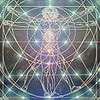Reincarnation: Life Returns Unceasingly
 by Rendol Snell
by Rendol Snell
The old conception of the Creator as a big, superior kind of man, who spoke face to face with wise men of old, telling them the plan of creation and destiny of the world, has been outgrown, so that it is the privilege of any person to investigate for himself the great problem, “What am I?”
Science has been making great strides to solve the mysteries of nature but there yet remain many problems unsolved. One of these is the origin and nature of life and the important question of life after death. A few paragraphs here will be devoted to explaining the theory or, better, hypothesis of reincarnation and some problems connected therewith.
To put the matter in simple words, the writer believes that life returns again and again on the earth. Not only human life but all life.
This theory, under the name “transmigration,” was taught by Buddhism in a crude form and is believed in by at least one-third of the population of the earth, who are more or less under the influence of Buddhist teaching. Like all great fundamental ideas, there are perhaps few parts of the earth where the idea has not been present in some dim fashion.
Reincarnation claims that life is just as eternal as matter, that it has existed before and will exist through all time. At birth there is not a new creation, but an old life returning. On the very face of it, reincarnation looks reasonable. It bears the scientific test as no other theory will.
Everywhere you look in nature you see a constant return of things to what they were before. This morning I sat beside the rapids of the river watching the logs dash over the rocks, throwing spray into a cloud of mist. The water rushes down into Lake Ontario, on through the St. Lawrence to the Atlantic. Gone forever, one would think, for how can it hope to return against the iron force of gravity now pulling it with such mighty force? But sooner or later it is evaporated into mist and carried by winds until it falls in rain and again passes through rivers and lakes to the ocean. Even if caught by biting frost, changed to hard solid ice and imprisoned among the rocks of the mountains, the warm sunshine at length melts it and it pursues its course to the ocean.
Water eternally moves in a circle and the motion keeps it pure and wholesome.
How about those logs dashing over the rapids? Some of them are indeed monsters. They cannot hope to return, you naturally think. Let us follow them. Farther down the stream they are sawed into lumber and used in building houses. The houses stand for fifty years, when one day they catch fire and are gone. Where have they gone? The oxygen of the air has by a process called “fire,” united chemically with the carbon of the wood—its chief element—and formed carbonic acid gas. Carbonic acid is invisible and totally different in every way from either carbon or oxygen. It mixes with the air and floats about everywhere. Again completely gone you would think. This poisonous, invisible gas has no chance to ever become a log again! But nature is a wonder worker. The carbonic acid gas, floating about, enters the leaves of trees and is separated into carbon and oxygen. The carbon is stored up in tree growth. In a few decades the tree is cut down and again floats down a river to be sawed into lumber or to be burned for fuel. While this may not be the actual history of the logs I saw, the process is accurately described. For, whether it be by fire or the slower process of decay, the result is the same. No particle of carbon can be destroyed. It is ever changing. Sometimes it is in one chemical compound, sometimes in another, but, eventually, returning to its original carbon form.
If a particle of water or a particle of carbon is never destroyed, but returns to former conditions, is it not reasonable to suppose that “Life” cannot be destroyed and that, no matter what wonderful changes it undergoes, will return to its former condition? When wood is burned its chances of again becoming wood look less possible than that the life of a man will return even though his dead body is being laid to rest under the cold and silent earth.
Much of the food we eat is composed of carbon. It enters the blood and builds up the tissue of the body. Gradually this tissue is worn out and is carried to the lungs. Here it comes in contact with the oxygen breathed in and unites with it to form carbonic acid which is then breathed out. Carbon that entered the body in the form of food is now floating about in the form of carbonic acid gas. The growing grains and fruits of harvest inhale this gas and eliminate the carbon to cause growth. When the ripening process is complete the carbon is again eaten as grain or fruit. Another proof that things in nature, though undergoing marvelous changes, return to a similar condition.
Nitrogen, silica, potassium, sodium, and a host of other materials are used up in plant growth and are, upon decay, again returned to the soil. A case of “that which came from out the boundless deep returns again home.” Dust returns to dust.
Now let us take the case in a more general and scientific way: Any substance like iron, gold, carbon, etc., which cannot by any known chemical or other process be broken up into other substances is called an element. Water is not an element, for, by means of electricity, it can be broken up into two gases, viz., oxygen and hydrogen. Elements have an affinity for one another, which is a sort of “liking” as it were. For instance, carbon and oxygen, these cling to each other and form carbonic acid, a process that can be seen where fire is burning. Oxygen has an affinity for iron and unites with it to form oxide of iron, commonly called rust. When elements unite they form what is called a chemical compound. Examples of compounds are water acids, sugar, lime, alcohol, etc., etc. On every side, about us and within us, chemical changes are taking place. Compounds are being formed from elements or simpler compounds, or else compounds are breaking up into elements or simpler compounds. The smallest possible particle of any substance is called a molecule. If a molecule is broken up it no longer remains the same substance but becomes the elements. For example, when a molecule of water is broken up by electricity, it changes to two atoms of hydrogen and one of oxygen. If collected in tubes, which is easily done, they may, by touching a match to them, be reformed into water. That these chemical changes are most wonderful is seen from the fact that oxygen and hydrogen are each an invisible gas; hydrogen burns readily and oxygen is necessary for fire; but combined they form a liquid that extinguishes fire, viz., water.
I mention these things to show that matter is indestructible and that there is a cycle of change in nature. They also show that the case of a tree, an animal, or a man dying and in the future living again is not stranger nor more wonderful than these simple chemical changes.
We have then, in nature, chemical changes forever going on. Today an element is part of one compound, tomorrow part of another, again back to an element, on then to a compound and so on indefinitely. Nothing can be lost. There is no actual death. Substances are lost to our feeble mortal sight, but they nevertheless exist and go forward forever in the processes of nature.
Christ repeatedly used simple things in nature to illustrate truths more profound. He pointed to the beauty of the lilies to show that God would much more look after man. Well, if the atoms of inanimate substances cannot be destroyed, but forever go forward in one compound or another, or in the elemental form, is it not reasonable to think that the far more important thing “Life,” whatever it may be, is never actually lost or destroyed? Must we not conclude that “Life” goes ever forward and, though out of mortal sight at times, reappears in other places and in other forms?
Science has demonstrated the importance of small things. More and more are mysteries of microbes, molecules, atoms, light rays, etc., revealing the deep things of nature. Things that were incomprehensible a few centuries ago, are now clear as day. Take diseases for example. Originally disease was considered as a sort of evil spirit sent for punishment of the sinful. Some tribes still look upon disease in that simple manner. The microscope has made it possible to see the very microbes which cause many diseases. Disease is found to be something real and tangible—a material thing. Because these microbes are microscopically small, in no way makes their significance slight. Robert Burns was once asked why the Lord had made a certain woman so large and another so little. To this he replied:
Ask why God made the gem so small,
An’ why so huge the granite?
Because God meant mankind should set
The higher value on it.
You can hardly contrast small and large any more, so important have small things become. They are simply terms relating to the very limited range of our senses.
A molecule is so small that there are said to be as many molecules in a drop of water as there are in the earth pieces the size of an apple, or over 600,000,000,000,000,000. There. are 300,000,000,000,000,000,000,000 molecules of copper in a pin head of a brass pin. Never let figures frighten you. Yet one of these molecules may be almost as wonderful as a whole planet. Were our brains of electric speed, instead of the ordinary speed of a trotting horse, we might make marvelous discoveries in a single molecule; might see oceans and continents, immense distances, wonderful laws, the secrets of much that are now mysteries.
If every birth be a new creation, there is certainly great diversity shown. One child at a very early age reaches up to the piano and plays in a remarkable manner for one so young. To him music is simple and delightfully pleasant to learn. He yearns towards it. Other children learn music, if at all, with great difficulty. According to the reincarnation theory the difference in their musical aptitudes is explained very simply. As the soul reappears with all the capabilities it had at the previous death, the soul of a good musician reappears with great aptitude for music. Once anything is in the soul, not even death can destroy it. Again, one child will find mathematics easy. He delights in solving difficult problems. It is because he was a mathematician in his previous life. Some women make good nurses, because they have sympathy. They get near to the hearts of their patients. This may be because they have in previous lives been afflicted with disease. Having experienced suffering they have that refinement of sympathy which makes them successful nurses now. Again you will wonder why a certain man is such a temperance crank. He exhausts the dictionary in his efforts to get strong enough words to condemn alcohol and all who deal in it. No doubt in some past life he was a drunkard or in some way sorely afflicted from alcohol. Hence he guards against it now instinctively. His whole soul is aroused because his soul has suffered sorely. I, myself, have almost a craze for liberty, I not only hate paternal legislation, but am particularly unsympathetic with those who advocate such legislation. In the past I must have been under a tyrant and, knowing the galling nature of the experience, I can now scent the merest suspicion of tyranny.
We reap what we sow. Every effort put forth in this present life will mean so much better a start in our next life. The good we do will bring blessings, the evil will breed pain and sorrow. The great law of cause and effect works on eternally. Do not cheat yourself with the idea that you can escape.
Christ said that Elias had already come and His disciples knew that he meant John the Baptist. These men were enough alike to have been the same person. Shakespeare may have been Homer, Napoleon may have been Alexander the Great, Darwin may have been Aristotle, and so on and so on.
Details of this theory are quite interesting and some of them profoundly beautiful. Most people are so perplexed over the mysteries of life and death. Here is a golden key that unlocks such a new and harmonious world. You see a loving old mother weeping away the little of vitality left her over a son who has sacrificed his life to strong drink. She never can smile again because her philosophy of life holds out no hope for him in the great eternity beyond. What could be sadder! But she need not despair, neither need her friends grieve. The son shall live again and take advantage of the experience and avoid former mistakes. Truly, as the poet said, “Life is too much with us.” Our imaginations are so stupid that we cannot think of the vastness of time and, therefore, of the opportunities that lie before us. One short life isn’t all. Other opportunities will surely come.
How comforting too, to know that all the myriad animals are not born to be annihilated. The wonder is that anybody ever could have believed such a cruel philosophy—that of life as one long-drawn agony, closing in death that ends all. But no, the animals live again and progress upward in the evolution of life. Persons who err must suffer but not eternally. They will have myriad chances to weed out the thorns and poison stuff and plant instead beautiful flowers and golden grain. The weak ones may plod along and reach the heights in their own slow, quiet fashion. Fate is stern but not arbitrarily cruel. Always a chance to mend, always reward for every kind of good effort. There is a reason for everything and most trivial things count. The beautiful face you admired in passing is the result of something harmonious in past lives. The good luck is the result of good deeds done, the ills of evils in a past life.
You admire your lover all the more because you can trace her back through countless ages. That light springing step is a remnant from the time she roamed the forest the swiftest and noblest of the animal tribes. It did not come by mere chance. Neither did her courage and noble bearing. A queen in your eyes now, because in past ages she was a queen ruling the tribes of the forest with power and dignity. Be sure no gifts come merely by chance but from merit. If the ages gone by have brought her up from lower forms of life to that of a noble woman, what will she be in ages hence? And is not this prospect of advancement sufficient to satisfy any reasonable longings we may have? You loved her at first sight because you loved her before and your souls recognize each other.
Evolution shows that differences in structure have developed very slowly. It took ages for man to learn to walk erect. A language develops very slowly. What can you point to of value that has not taken ages to produce? Is it not reasonable to suppose that soul qualities, which are the highest things, are the result of ages? Can you believe that the soul of Shakespeare or Newton developed from but one short life of a few years? It would be contrary to all the teachings of science. The British constitution is a wonderful development, but it took centuries to perfect it. The British constitution is lifeless and insignificant in comparison with a human soul, but is in fact a product of the human soul. Can you believe, then, that the soul is a product of a few short years? Is it not reasonable to suppose that the soul is the result of long ages of development?
Reincarnation gives a reasonable explanation why children as a rule are so much different from either parent. The parents of most great men were quite ordinary people. How else do you account for the proverbial “black sheep” that are said to afflict every family? The black sheep is black because his past life was black largely independent of his parents. The brilliant son is brilliant because of past lives of faithful effort towards advancement and through the fairness of destiny in rewarding good deeds done. There is no doubt that parents have an influence on the individual character of their children but this is far from being the chief factor.
Reincarnation explains the significance of many dreams. A friend of mine used to be punished when as a boy for relating strange dreams and for believing that he had lived before. One night he dreamed he was living in the time of Boadicea among the Britons. He rode on a wonderful chariot to a druid sacrifice. The victim was bound hands and feet and, with great ceremony and gesticulation, sacrificed. He had never read of such an incident. No doubt in a past life he had been sacrificed and now, when the body is passive in sleep, his ego recalls the tragic events of its past lives. Is it not reasonable to suppose that, if a person goes through some specially tragic event, that his soul would recall it in the future? Another friend sees a strange “dream town” totally different from modern towns. He also dreams of ancient battles where the commands were given in a now forgotten language. I, myself, have a very peculiar dream that has recurred time and again, which is no doubt one of the tragic events of my past lives. It is too gruesome to describe here. Truth is stranger than fiction and there may be a good deal of truth in these strange dreams.
Proof Of Reincarnation In Evolution
The world was not created in the same condition it is in today. The rock strata show that mighty changes have taken place. In the animal and vegetable world too there have been vast changes. In the history of nations, in art, in religion, in everything, there has been steady progress upward from humbler conditions. It remained for Charles Darwin to discover the great law underlying this progress.
Darwin spent several years in the country near London where he observed breeders improving stock by means of careful selection of sires and dams. From the wonders wrought in species of domestic animals by means of selection he looked about in nature for some similar natural means of selection. He discovered it and established his discovery beyond doubt. This law of natural selection is generally known as “Survival of the Fittest.” Here is a law or force that is everywhere constantly at work. For example, take the oak tree. The acorns it produces are many times more in number than have any chance of growing into oak trees. Hence there arises a strife for which shall survive and, generally speaking, the “fittest survives”—the strongest and healthiest. Now follow up through centuries this breeding of oak trees from the best seed and there cannot help being an improvement in the trees themselves. In the animal world there is constant strife. The swiftest deer escape the wolves. Their offspring are swift from heredity. The strife continues and the swiftest of these again survive, and their offspring become swifter still—survival of the fittest, which in this case is the swiftest. The males have to fight for the favor of the females and mastery of the flock. In this struggle the “fittest survives” and the offspring inherit the superior qualities of the parents. This law you will find working everywhere in nature.
Well, if through this law there has been gradual progress, you have to go back only a few centuries to find very humble conditions. Every branch of science confirms the Evolution Theory.
The astronomer sees evolution. In the heavens he sees every stage of world making from the nebula to other nebula that have advanced a stage and are partly solid with a whirling motion; others still are condensed to suns with rings around them, the rings being the first step in planet making.
The geologist sees evolution in his study of the rocks. For these rocks contain wonderful records. Petrified remains of animals and plants are discovered everywhere. They are not found mixed, but the older the rocks are the simpler are the forms of life embedded in them.
The anatomist in his investigations finds evolution the correct theory. All higher animals have five fingers with four bones each except the thumb. Sometimes these are but slightly developed. But the fact shows relationship. Man has, in a modified form, the pouch of marsupials. Men and apes have the same number of vertebrae, muscles, and nerves. Why so if they are not related? All back-boned animals and man are built on the same general bone structure.
Study embryology and you will be still further convinced of the Evolution Theory. Every being including man, develops from an egg. The embryos pass through stages and odd shapes that are an abridgment of the life history of the ancestors far back. The embryos of a child and an ape at one time have three gills like newts, then a fine fur over the body, a tail that looks like that of a dog. These disappear before birth. At certain stages you cannot distinguish the embryos of man, dog, chicken, turtle, etc.
Rudimentary organs are convincing proofs of evolution. These are organs found in bodies for which there is no purpose for their existence. These used to give orthodox scholars no end of trouble to explain. They held them to be created for the purpose of symmetry but that does not satisfy candid minds. There are scores of these rudimentary organs.
Seeing there was no possible resistance to the Evolution Theory many orthodox scholars struck what they thought a brilliant idea, that man’s physical nature came about through evolution, but that his intellectual and spiritual nature was a special creation. This idea, too, is doomed to failure. It is well established that the intellectual and physical natures are not distinct in any sense. They are inseparable. There is every reason to believe that the psychical nature resulted from an evolutionary process just as surely as did the physical.
Most marvelous have been the effects of the grand Darwinian theory. You cannot read modern writers without seeing distinct traces of evolution, so much have men’s minds been affected by this marvelous discovery. It has added fresh life to the whole intellectual world. Perhaps its chief glory has been this broadening and deepening of intellectual pursuits. Evolution has broadened man’s conceptions of the universe. It has perfected his culture. It has given nobler conceptions of the Creator, bringing Him near to hand, at work in everything about us.
The theory of reincarnation harmonizes beautifully with evolution. Evolution teaches progress. Reincarnation points out that life returning to begin where it left off, is a reason for that progress. Therefore, reincarnation is reasonable, natural and scientific.
Excerpt from Reincarnation Or Life Returns Unceasingly
Posted in Other Topics, Reincarnation, Spiritualitywith comments disabled.





